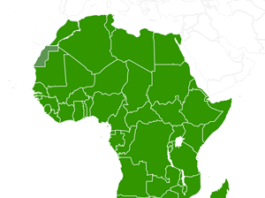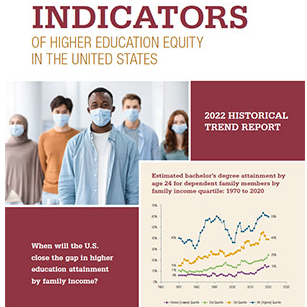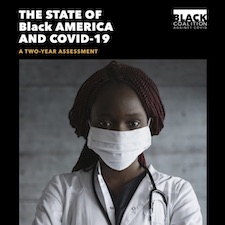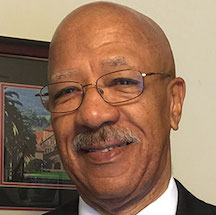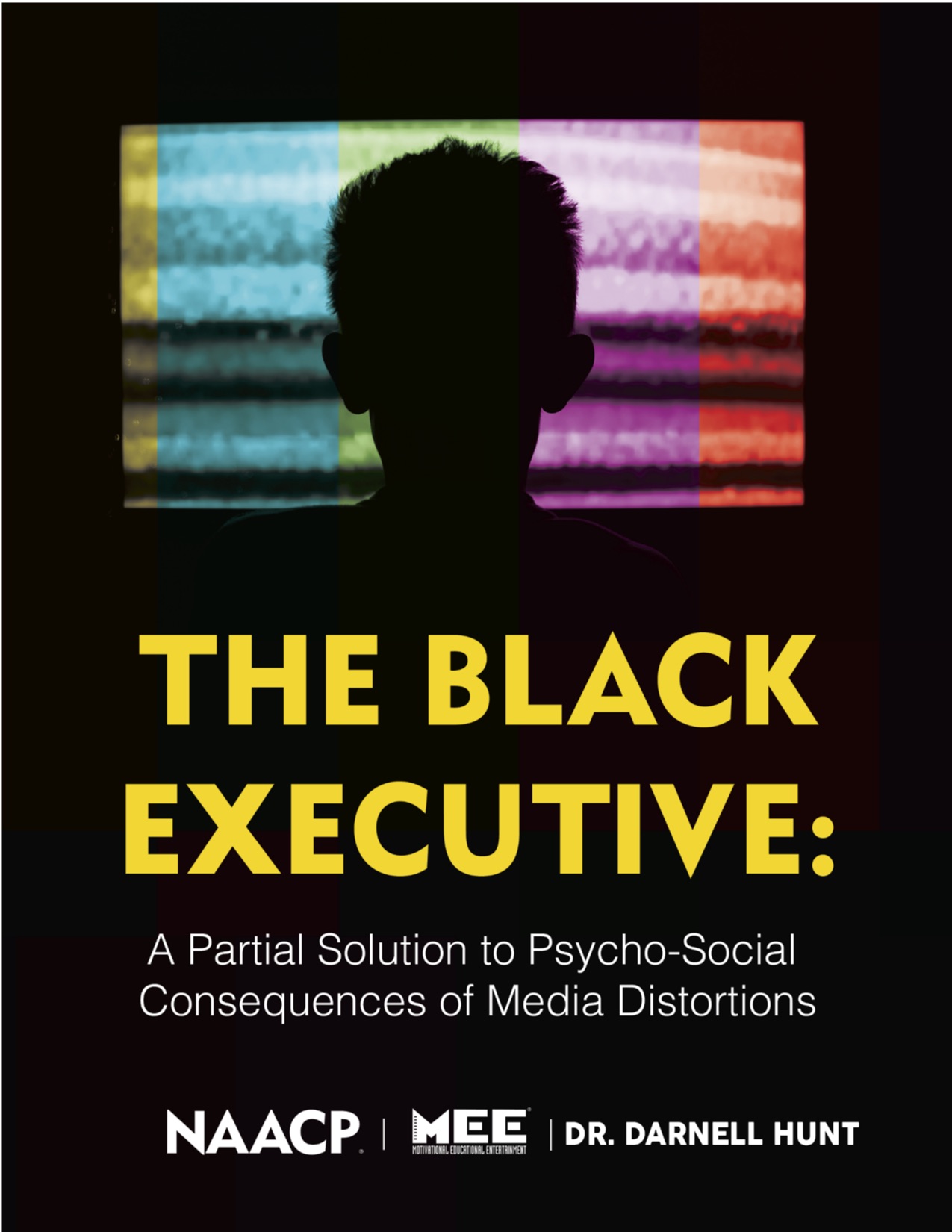New Study From The Century Foundation Shows the Cities With the Most Racially Segregated...
The Century Foundation study finds that the de facto separation of students by race continues to be commonplace. As of the 2018–19 school year, one in six public school students attended schools where over 90 percent of their peers had their same racial background.
How Racial Disparities in Income and Wealth Impact Educational Attainment in the United States
A new study finds that the United States is falling behind many countries in the developed world in terms of higher education attainment. Much of the decline in educational attainment is attributed to unequal income and wealth which limits the ability of Blacks and other underrepresented groups to afford a college education.
Firearm Homicide Rates for Blacks Spiked During the Early Stages of the Pandemic
A new report from the U.S. Centers for Disease Control and Prevention finds that from 2019 to 2020, the overall firearm homicide rate increased 34.6 percent, from 4.6 to 6.1 per 100,000 persons. For African Americans, the firearm homicide rate increased from 19.0 to 26.6 per 100,000 people.
How Stress in the Academic Environment Impacts the Health of Black Women
Researchers at the University of Wisconsin and the University of Texas have found that the high-stress environment of higher education may negatively impact the mental and physical health of Black women in the academic world.
Study Finds Telemedicine May Be Closing the Racial Gap in Primary Care Visits
A study by researchers at the Perelman School of Medicine at the University of Pennsylvania found that racial gaps in access disappeared for their patients during the initial phase of the pandemic. Once “normal” in-office appointments returned, the historic inequities stayed erased.
Student Loan Debt is Not the Only Financial Concern for Young Black Americans
Black millennials report carrying substantially more medical debt compared to other generations. Of those respondents who could estimate their medical debt, Black millennials self-reported they have on average $11,469 in medical debt.
Study Looks at the Mental Health and Help-Seeking of College Students of Color
Researchers found that the mental health of college students across the United States has been on a consistent decline over the past eight years. Mental health issues take a particular toll on African American and other students of color.
National Academies Report Finds Low Defense Department Research Funding for HBCUs
The National Academies analysis used data from fiscal years 2010 to 2020. It indicated that there has not been a significant expansion in the funding for research projects or research capacity awarded to the vast majority of HBCUs, despite legislation and departmental efforts with this stated intent.
Study Finds Higher Levels of Black Maternal Mortality Due to Effects of Racism ad...
The data revealed a much greater disparity between women of color and White women than had been determined in other studies. The authors found that maternal mortality rates for Black women in their early 20s are consistent with those of White women in their mid-30s or older.
Survey Shows Medical and Science Fields Need to Do More to Gain the Trust...
History has given the African American community plenty of reason to distrust the science and medical communities. A new survey from the Pew Research Center documents the level of trust Black Americans have with these groups today.
The Troubling Decline of Black Men in Academic Medicine
A new study led by Sophia C. Kamran, an assistant professor of radiation oncology at Harvard Medical School and a radiation oncologist at Massachusetts General Hospital Cancer Center, finds that over the past generation while female representation rose dramatically in U.S. medical schools, the number of Black men in academic medicine stagnated or decreased.
A Significant Racial Difference in Who Receives CPR From Bystanders
Researchers found that when the cardiac arrest occurred in public, 46 percent of Black and Hispanic people received CPR compared with 60 percent of White people. A White person going into cardiac arrest in a community that was more than 50 percent Black and Hispanic was still more likely to get bystander CPR.
Racial Disparities in Sleep Duration Impact Overall Health Inequalities
A new study led by researchers at Yale University finds that Black people had the highest prevalence of both short sleep duration [fewer than 7 hours] and long sleep duration [more than 9 hours]. The percentage of Blacks with inadequate sleep duration has grown significantly in recent years.
Tracking Racial and Ethnic Disparities in Exposure to Harmful Pesticides
The researchers found that higher exposure to pesticides has potentially serious health effects. Twelve out of 14 markers for harmful pesticides, tracked over the past 20 years, were found in the blood and urine of Black and Mexican Americans at levels up to five times higher than those found in White Americans.
During the Pandemic, There Was a Large Racial Gap in the Use of Telemedicine
The research team examined electronic medical records from 55 individual clinics in six different counties in Texas. They found that African Americans were 35 percent less likely than Whites to use telemedicine. But the main reason for the disparity was not mistrust of the medical establishment, but rather the racial digital divide.
The Pandemic’s Huge and Lingering Impact on Black Educational Attainment
The vaccine rollout in the spring of 2021 cut the share of students who planned to cancel their postsecondary education by more than half across all racial and ethnic groups. Fewer students of all races canceled their educational plans, but the racial gaps in educational disruption persisted. Inability to pay was the most cited reason for educational disruptions.
Vast Majority of Blacks Believe Their Racial Identity Is Extremely or Very Important to...
A new study by the Pew Research Center finds that the vast majority of Black Americans say being Black is extremely or very important to how they think about themselves. This is true across all income levels and educational backgrounds.
How COVID-19 Took a Disparate Impact on Black America
The study was produced by the Black Coalition Against COVID, a group that consists of several organizations and businesses including the four historically Black health science centers: Meharry Medical College; Howard University College of Medicine; Morehouse School of Medicine, and Charles R. Drew University of Medicine and Science.
How Search Committee Chairs Impact Equity in the Faculty Hiring Process
Many search chairs felt that HR and EO departments were responsible for making sure searches were equitable and inclusive. However, a common theme in interviews was the lack of information and clarity from those departments when it came to the search chair’s role. Some chairs said they had no training on how to center diversity and equity, while others received very little.
Stanford Study Finds That Closure of Majority Black Public Schools Leads to Gentrification
Researchers combined U.S. Census data with national statistics on school closures to investigate whether the closures affected patterns of gentrification, a phenomenon marked by an influx of relatively affluent residents in previously disinvested neighborhoods. School closures increased gentrification, the study found – but only in predominantly Black neighborhoods.
Black Students Experiencing Racism on Campus Lack Mental Health Support
College campuses are having trouble recruiting enough therapists to meet the mental health needs of students overall. And few predominantly white colleges employ counselors and mental health professionals who are representative of the racial, ethnic, and cultural diversity of the students.
Major Increase in Black First-Year Enrollments in U.S. Medical Schools
The number of Black or African American first-year students at U.S. medical schools n 2021 increased by 21.0 percent, to 2,562. Black or African American students made up 11.3 percent of first-year students in 2021, up from 9.5 percent in 2020.
New Report Shows Diversity Efforts in High-Tech in Academia and the Workforce Have Stalled
Despite comprising 15 percent of the K-12 student population, Blacks make up just 6 percent of students taking advanced placement computer science courses. In 2020, only 8 percent of bachelor's degrees conferred in computer science were earned by Black graduates, a decrease since 2016.
Study Examines Racism Faced by Faculty of Color in Teacher Education Programs
A new study by scholars at the University of California, Riverside and San Jose State University examines the experiences of faculty of color in teacher education programs who were hired specifically to teach race and racism within programs that, nonetheless, prioritized whiteness and the needs of White student teachers.
New Census Bureau Data Shows Racial Differences in Household Debt
It may come as a surprise to many readers that White households have far more debt than Black households. But Blacks have median household incomes that are only 60 percent of the median income of non-Hispanic White households. And Whites hold 10 or more times the wealth of Black households. So Whites have a far greater ability to pay off their debts.
Bowie State University Scholar Shows How to Reduce Civilians Deaths During Police Encounters
Each year about 1,000 civilians are killed in the United States by law enforcement officers. Many of these people killed in these encounters are African Americans. Now, a new system developed by James Hyman, assistant professor of public administration at Bowie State University, may be used to help understand how and why deadly encounters occur.
New CDC Reports Show Racial Differences in Tobacco Usage
In 2020, 14.4 percent of African American adults smoked cigarettes, compared to 13.3 percent of non-Hispanic White adults. Black Americans were more likely to smoke cigars than any other racial or ethnic group. Blacks were nearly twice as likely as non-Hispanic Whites to smoke tobacco in pipes.
Racial Disparity in the Ownership and Value of Particular Assets
While the overall wealth gap between Blacks and Whites is expanding, there are huge differences in the percentage of Black and White families who own their home, have money in the bank, have retirement savings, and who own stock or mutual fund shares. For those who own such assets, there is a huge racial gap in their value.
Wells Fargo Report Details Black Economic Progress
Wells Fargo, the large financial firm, recently released a new report detailing significant economic progress that the Black community has achieved in recent years in employment, lowering the unemployment rate, income, and entrepreneurship.
The Impact of a Lack of African Americans in the Hollywood Executive Suite
There were no Black CEOs or members of the senior management team at the major Hollywood studios in early 2020, and only 3.9 percent of major studio unit heads were Black.
The Growing Racial Wealth Gap and Its Impact on Higher Education
If we exclude home equity, the median net worth of non-Hispanic White households in 2019 was $79,010. For Blacks, the median net worth - excluding home equity - was $3,630. Thus, Whites had nearly 22 times as much wealth as Blacks when we exclude the value of homes. Four year earlier, Whites held only a 12-to-1 advantage.
Grading the Schools With the Largest Athletic Programs on Their Diversity in Leadership Posts
The latest report on the status of women and racial and ethnic minorities in leadership positions at the 130 educational institutions in the Football Bowl Subdivision of the NCCA has been released by The Institute for Diversity and Ethics in Sport (TIDES) at the University of Central Florida. These are generally the schools with the nation's largest athletic programs.
Study Finds Racial Differences in Approvals for U.S. Citizenship
A new study led by Emily Ryo, a professor of law and sociology at the University of Southern California, finds that there are racial disparities in who is approved for citizenship during the naturalization process.
The Racial Gap in Educational Attainment in the United States
In 2021, nearly 42 percent of non-Hispanic Whites over the age of 25 had obtained at least a bachelor's degree compared to 28.1 percent of Blacks over the age of 25. Black women hold a large lead over Black men in degree attainments at all levels. For Black Americans, the gender gap is most apparent at the master's degree level.
Ohio State University Study Examines the Reasons for the Racial Gap in Vaccination Rates
A new study led by researchers at Ohio State University finds that Black Americans who were initially hesitant about receiving a COVID-19 vaccine were more likely than Whites who were against taking the vaccine to come to the conclusion at a later date that getting vaccinated was the right thing to do.
Mentioning Racial or Ethnic Identity Can Increase Chances of Obtaining Career Help
In a new study, researchers at the Wharton School of the University of Pennsylvania found that people are significantly more likely to offer career help to people from underrepresented groups when help seekers mention their racial or ethnic identity in requests.




